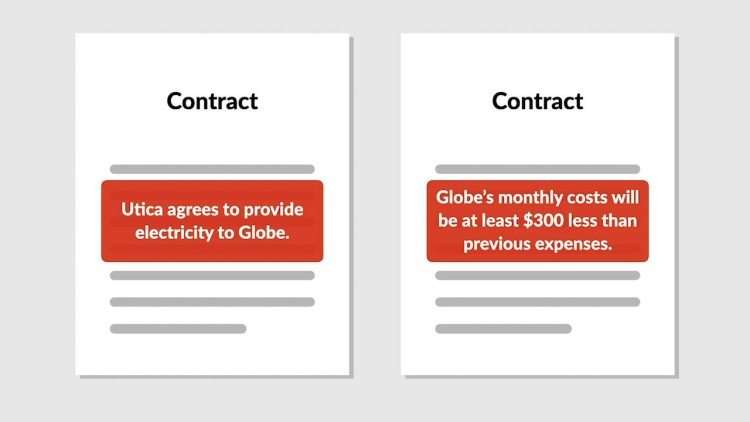Globe Woolen Co. v. Utica Gas & Electric Co.
Court of Appeals of New York
121 N.E. 378 (1918)
- Written by John Caddell, JD
Facts
John Maynard was both president and a director of Globe Woolen Co. (Globe) (plaintiff), an operator of two textile mills. Maynard was also on the board of directors of the local electric power company, Utica Gas & Electric Co. (Utica) (defendant), though he held no stock in Utica. Maynard wished to convert the mills from steam power to electric power but was concerned that the cost of conversion would be too high. Greenidge, the general manager of Utica, engaged in negotiations with Maynard that resulted in two contracts to provide electricity to the mills. The contracts included a guarantee that the monthly cost of electricity would be at least $300 less than Globe’s prior steam expenses. After Greenidge and Maynard had agreed to the terms, the contracts were presented to Utica’s board for ratification in December 1906 and February 1907. Greenidge presented the contracts and vouched for them. Maynard was silent at the meetings and did not vote on either contract. They were both approved by the board. It soon became clear that Greenidge had miscalculated and that the contracts would generate huge losses for Utica. Globe increased production and power usage significantly, but Utica was still required to provide cost savings based on prior production levels. Maynard had not warned of the changes. Predicting losses up to $300,000 if it held to the terms, Utica gave notice of rescission in February 1911. Globe sued for specific performance. The trial court ruled for Utica, finding the contracts unenforceable because they were unfair, oppressive, and made under the dominating influence of a common director. The appellate court affirmed. Globe appealed to this court, arguing that since Maynard had abstained from voting on the contracts, he and Globe were shielded from these claims.
Rule of Law
Issue
Holding and Reasoning (Cardozo, J.)
What to do next…
Here's why 907,000 law students have relied on our case briefs:
- Written by law professors and practitioners, not other law students. 47,100 briefs, keyed to 996 casebooks. Top-notch customer support.
- The right amount of information, includes the facts, issues, rule of law, holding and reasoning, and any concurrences and dissents.
- Access in your classes, works on your mobile and tablet. Massive library of related video lessons and high quality multiple-choice questions.
- Easy to use, uniform format for every case brief. Written in plain English, not in legalese. Our briefs summarize and simplify; they don’t just repeat the court’s language.





